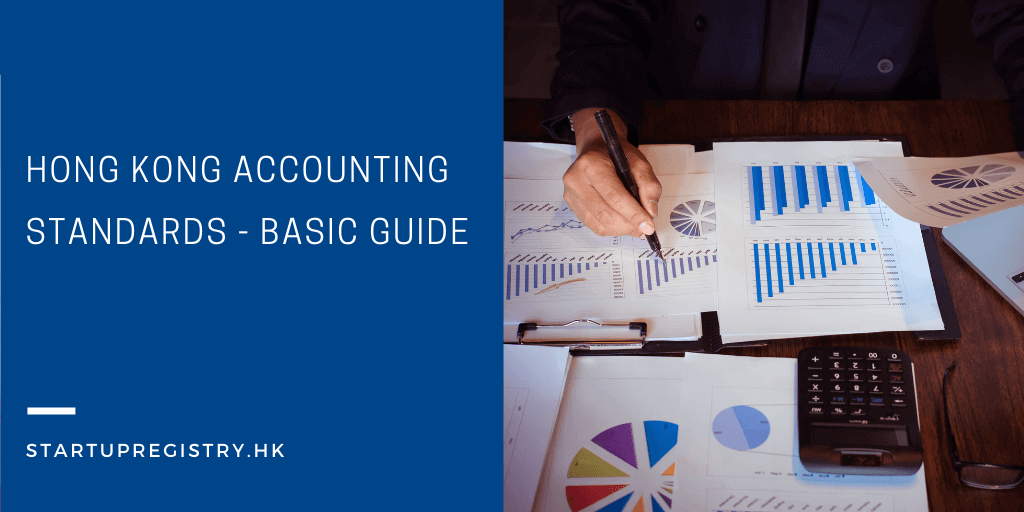Companies incorporated in Hong Kong are required to keep good books of accounts and to comply with statutory audit requirements on an annual basis, according to the provisions of the Hong Kong Companies Ordinance. Hong Kong’s accountancy profession is regulated by the Hong Kong Institute of Certified Public Accountants (HKICPA). Read more in our guide.

Hong Kong Accounting Standards
Hong Kong Accounting Standards (HKAS) are a set of rules that govern how financial transactions are handled in Hong Kong, as the name implies. Since January 2005, the Financial Reporting Standards (FRS) framework has been in effect in Hong Kong under the International Accounting Standards (IASB). The Hong Kong Accounting Standards, or HKAS for short, is a set of accounting standards established by the Hong Kong Institute of Certified Public Accountants (previously HKSSAP).
What are the Hong Kong Accounting Standards or HKAS?
Hong Kong has implemented a Financial Reporting Standards (FRS) framework modelled after the International Accounting Standards Board’s (IASB) International Financial Reporting Standards (IFRS) (IASB). Hong Kong Financial Reporting Standards (HKFRS) are accounting standards that define the recognition, measurement, presentation, and disclosure requirements for transactions and events that are significant in general purpose financial statements. The use of HKFRS provides us with a “true and fair view” of financial accounts.
HKICPA – Overview
The Hong Kong Institute of Certified Public Accountants (the Institute) is the only entity in Hong Kong allowed by law to register certified public accountants and issue practice certifications. The Hong Kong Institute of Certified Public Accountants is a world-class, high-quality professional body that serves Hong Kong’s corporate community and public interest while also contributing to the city’s long-term development as a major international financial and business hub.
Why are companies required to follow HKAS?
The goal of HKFRS is to make financial and cash flow information accessible to other parties such as investors, shareholders, creditors, and the government. If all of this becomes too much for you, keep in mind that you don’t have to handle everything yourself when running a business. Except for cash flow information, one of the major principles of Hong Kong accounting standards is that an organization prepares its financial statements using the accrual method of accounting. The consequences of transactions and other events are recognized as they occur and are recorded in the financial statements of the periods to which they correspond under the accrual system of accounting. The accrual basis of accounting informs users not only of past transactions involving the payment and receipt of cash but also of future obligations to pay cash and resources that represent cash to be received in the future.
What do Hong Kong Accounting Standards include?
The Hong Kong Financial Reporting Standards (HKFRS) comprises 41 accounting standards, 17 financial reporting standards, and various interpretations. Each standard addresses a specific topic, such as financial statement presentation, inventory, cash flow statements, and income taxes, among others.
The Hong Kong Accounting Standards, or HKAS for short, is a set of accounting standards established by the Hong Kong Institute of Certified Public Accountants (previously HKSSAP).
- HKAS 1 Presentation of Financial statements
- HKAS 2 Inventories
- HKAS 7 Cash flow statements
- HKAS 8 Accounting Policies, Changes in Accounting Estimates
- HKAS 10 Events after the Reporting Period
- HKAS 12 Income taxes
- HKAS 16 Property, Plant and Equipment
- HKAS 19 Employee benefits
- HKAS 20 Accounting for government grants and disclosure of government assistance
- HKAS 21 The Effects of Changes in Foreign exchange rates
- HKAS 23 Borrowing Costs
- HKAS 24 Related Party Disclosures
- HKAS 26 Accounting and Reporting by Retirement Benefit Plans
- HKAS 27 Separate Financial Statements
- HKAS 28 Investments in Associates and Joint Ventures
- HKAS 29 Financial Reporting in Hyperinflationary Economies
- HKAS 32 Financial instruments: Presentation
- HKAS 33 Earnings per share
- HKAS 34 Interim Financial Reporting
- HKAS 36 Impairment of Assets
- HKAS 37 Provisions, contingent liabilities and contingent assets
- HKAS 38 Intangible assets
- HKAS 39 Financial Instruments: Recognition and Measurement
- HKAS 40 Investment Property
- HKAS 41 Agriculture
Examples of HK Accounting Standards
These are the examples of the HK Accounting standards which has to be used and considered as a part of the process, these are explained below :
HKAS 1: Presentation of Financial Statements
The Hong Kong Accounting Standard 1 Presentation of Financial Statements (HKAS 1) establishes the overall criteria for financial statement presentation, as well as structure principles and content minimums. Unless the management intends to liquidate or discontinue trade, the management of an entity must consider the entity’s capacity to continue as a going concern while issuing financial statements. When an entity does not prepare financial statements on a continuing concern basis, it must disclose that fact, as well as the basis on which the financial statements were prepared and the reason for the firm’s ongoing concern status.
Except for cash flow information, a firm must prepare its financial statements using the accrual method of accounting.
Unless an HKFRS requires or permits it, an entity may not offset assets and liabilities or income and expenses.
At least once a year, an organization must present a comprehensive set of financial statements (including comparative information).
HKAS 2: Inventories
The accounting treatment for inventory is defined by Hong Kong Accounting Standard 2 Inventories (HKAS 2). The amount of cost to be recognized as an asset and carried forward until the accompanying revenues are recognized is one of the most important concerns in inventory accounting. HKAS 2 provides guidance on determining cost and recording it as an expense, as well as any write-down to net realizable value. It also gives instructions on how to use cost formulas to assign costs to inventory.
In accordance with HKAS 2:
- The lowest cost and net realizable value shall be used to calculate inventories.
- All purchase, conversion, and other expenditures incurred in bringing the inventory to its current location and condition shall be included in the cost of inventories.
- The first-in, first-out (FIFO) or weighted average cost formula should be used to assign inventory costs.
HKFRS 15: Revenue from Contracts with Customers
Hong Kong Financial Reporting Standard 15 Revenue from Contracts with Customers (HKFRS 15) establishes principles for reporting useful information to users of financial statements about the nature, amount, timing and uncertainty of revenue and cash flows arising from an entity’s contracts with customers.
The core principle of HKFRS 15 is that an entity recognises revenue to depict the transfer of promised goods or services to customers in an amount that reflects the consideration to which the entity expects to be entitled in exchange for those goods or services. An entity recognises revenue in accordance with that core principle by applying the following 5 steps:
- Step 1: Identify the contract(s) with a customer
- Step 2: Identify the performance obligations in the contract
- Step 3: Determine the transaction price
- Step 4: Allocate the transaction price to the performance obligations in the contract
- Step 5: Recognise revenue when (or as) the entity satisfies a performance obligation
Hong Kong Accounting Standards for SMEs
The HKICPA has additionally produced the SME Financial Reporting Framework (SME-FRF) and Financial Reporting Standard (SME-FRS) – as accounting standards for eligible SMEs – in addition to the HKFRS. This was done to make the reporting process easier for SMEs, which are by definition limited in resources. According to section 359 of the new CO, a company incorporated in Hong Kong qualifies for reporting under the SME-FRF and SME-FRS if it meets the reporting exemption requirements. The standards for the contents of financial statements and the directors’ report, which would typically apply if there was no exception, are mostly exempted.
Only a few companies, as listed below, are eligible for the new CO’s reporting exemption. These firms (or groups) must be private companies (or groups) or companies (or a group of companies) limited by guarantee, according to section 359 of the new CO.
Need any assistance in accounting for your Hong Kong business?
Have you ever considered how successful your firm could be if you had more time to focus on your core business rather than paperwork? Most expanding small and medium-sized businesses struggle to meet the demand for correct accounting yet lack the resources and scale to hire a full-time in-house accountant. Our accounting and bookkeeping services in Hong Kong allow our team of qualified specialists to keep track of all the data in your accounts. We will keep track of and evaluate your business’s financial activities, as well as provide you with an overall picture of the company’s performance and financial statements.
Last update: October 2025


